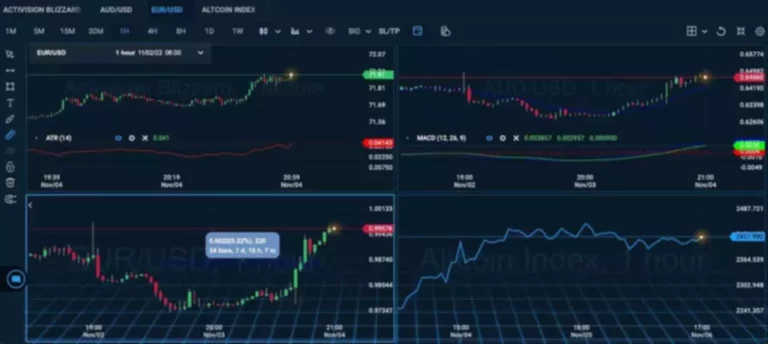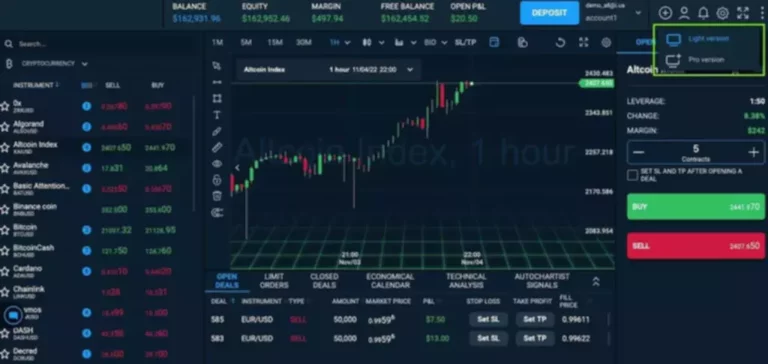As of this writing (December 2022), there are close to 70 dark pools registered with the Securities and Trade Commission (SEC). Now that you know the way darkish swimming pools work, you may want to know their roles and why banks and different “big boys” are using them. Dark pool trades are often conducted through alternative financial networks (ECNs) or instantly between major trade market players. Darkish pool informational methods are designed to reap the benefits of the information asymmetry that exists in the dead of night pool. Moreover, some critics argue that the lack of transparency can create opportunities for insider trading or other forms of market manipulation.
Throughout this process, securities are transferred to the buyer’s account, and funds are transferred to the seller’s account, finishing the trade. Trades in dark pools often happen at the midpoint of the National Best Bid and Offer (NBBO) — the common between the best bid price and the bottom ask value in public exchanges. This midpoint pricing is helpful as it ensures each the client and the seller receive a good market price.

After a commerce is reported, it appears as a part of the consolidated dark pool buying and selling data in market feeds. This mixture information provides a broad view of trading activity with out revealing specific details, preserving the anonymity of the unique traders while making certain that some stage of market transparency is maintained. These darkish swimming pools are owned collectively by a gaggle of economic establishments or brokerage companies. The consortium model offers a shared buying and selling venue that benefits a collective of institutional clients quite than serving the pursuits of a single broker-dealer.
Unlike traditional exchanges, dark swimming pools aren’t obtainable to on an everyday basis retail buyers. As An Alternative, they’re meant for institutional investors who frequently place large orders for their clients. The purpose is to avoid affecting the market when these giant block orders are placed.
What Is Otc Trading?
The largest advantage of darkish pools is that market impression is significantly decreased for large orders. Darkish swimming pools may decrease transaction costs because dark pool trades wouldn’t have to pay change charges, whereas transactions based on the bid-ask midpoint don’t incur the total unfold. The individuals of dark pool trading usually have millions’ price of block orders to fill. Orders that, if publicly quoted on inventory https://www.xcritical.com/ exchanges, could spook the whole stock market, and the basic public can begin panicking.
If you’re on this page studying about darkish swimming pools, chances are that you’re a retail dealer. So naturally, you’d be concerned about the effects of darkish pools on the average retail dealer such as you and me. The dotted line indicates 50%, and thus the primary stock has 50% of the quantity in darkish swimming pools, and the decrease one has almost nothing. However, you probably can no less than follow what darkish pool providers do through darkish pool indices, which may hint at what’s going to doubtless occur in the public market, like stocks. You can in all probability backtest dark pool strategies through the use of one of the dark pool indicators mentioned in the headline about darkish pool indicators. Unfortunately, we don’t have access to any dark pool information and thus we aren’t able to perform any backtests.
This led to the development of dark swimming pools, which are essentially non-public versions of those digital communication networks. Darkish pools have turn into crypto trading signals an integral a half of the global financial system right now, with billions of dollars price of securities traded on these non-public exchanges every day. The rule would require brokerages to ship shopper trades to exchanges quite than darkish pools except they will execute the trades at a meaningfully better value than that available in the public market. If carried out, this rule might current a critical challenge to the long-term viability of darkish pools. The recent HFT controversy has drawn vital regulatory attention to dark pools. Regulators have typically considered dark pools with suspicion because of their lack of transparency.
They offer their purchasers access to the pool and use it to commerce for their own accounts as nicely. This can result in conflicts of interest, because the broker-dealer can trade towards their own clients. The common trade size in darkish swimming pools has declined to less than a hundred and fifty shares. Standard exchanges will charge fees for block trades which may quantity to pretty significant charges over a long period of time. Darkish swimming pools don’t charge exchange fees on executed trades which implies that you cut out these prices.
What Are Some Nice Advantages Of Using A Dark Pool?
This type of authorized piracy can occur dozens of times a day, reaping huge features for HFT traders. However, there have been cases in the past where larger firms have performed unethical trades that essentially went against the pursuits of their own shoppers. The lack of transparency and regulation with darkish swimming pools have earned calls from key figures in finance to have these personal exchanges be extra carefully regulated. If you’re a retail investor, you’re at an unfair drawback when utilizing darkish pools.
- He is conscious of that this would immediately impact the company he’s working for because that is numerous shares, and his position would entice media consideration to the trade.
- Over time, darkish swimming pools have grown in reputation and are now utilized by many institutional traders to trade varied forms of securities, together with shares, bonds, and derivatives.
- Nonetheless, darkish swimming pools are often criticized because of their lack of transparency.
- This construction raises issues about potential conflicts of curiosity, because the agency might prioritise its trades over these of its clients.
- ECN networks had been initially used by brokers to execute trades on behalf of their shoppers.
- It offers quite lots of services to institutional buyers, including dark pool buying and selling.

Dark pools present pricing and value advantages to buy-side establishments such as mutual funds and pension funds, which maintain that these benefits ultimately accrue to the retail traders who personal these funds. Nevertheless, darkish pools’ lack of transparency makes them prone to conflicts of interest by their homeowners and predatory buying and selling practices by HFT companies. HFT controversy has drawn growing regulatory consideration to dark swimming pools, and implementation of the proposed “trade-at” rule may threaten their long-term viability.
Additionally known as dark swimming pools of liquidity, the name of these exchanges is a reference to their complete lack of transparency. For instance, Bloomberg LP owns the dark pool Bloomberg Tradebook, which is registered with the SEC. Dark swimming pools were initially principally utilized by institutional investors for block trades involving a massive number of securities. A 2013 report by Celent found that because of block orders moving to darkish pools, the average order dimension dropped about 50%, from 430 shares in 2009 to approximately 200 shares in 4 years. Darkish pool trading just isn’t inherently unsafe however as a smaller retail investor, there are a variety of things so that you simply can contemplate.
As of February 2020, there were more than 50 darkish pools registered with the Securities and Change Fee (SEC) in the united states They embody agency brokers or exchange-owned darkish pools, broker-dealer-owned dark swimming pools, and electronic market makers. The use of dark swimming pools allows institutional merchants to purchase and promote large blocks of securities without revealing their intentions to the basic public, which may trigger market volatility. Examples of darkish swimming pools include Barclays LX, Credit Score Suisse Crossfinder, and UBS PIN Various Buying And Selling System. A darkish pool is a private financial discussion board or trade principally utilized by institutional investors for trading monetary devices like securities and derivatives. Dark Stockbroker swimming pools, also called black swimming pools, usually are not accessible by the public and don’t show their trades, not like the common public stock market.
This measure determines whether the sentiment on the dark swimming pools is at present bullish (will buy assets) or bearish (will sell them). The quantity is represented by a proportion that theoretically goes from zero to 100 percent. So the more bullish the sentiment is, the extra the numbers will go up on the chart. Securities and Exchange Commission (SEC) brought a rule that allowed corporations to commerce property in over-the-counter areas.














